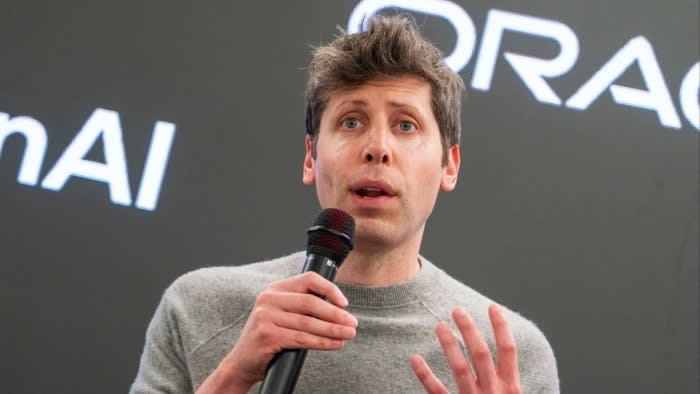Unlock the Editor’s Digest for free
Roula Khalaf, Editor of the FT, selects her favourite stories in this weekly newsletter.
OpenAI has completed a deal that values the artificial intelligence company at $500bn, allowing it to overtake SpaceX as the world’s most valuable start-up.
The secondary share sale allows current and former employees of OpenAI to sell about $6.6bn of their stock, said a person close to the company. Elon Musk’s SpaceX was valued at $400bn by investors in July.
OpenAI was previously valued at $300bn as part of a $40bn financing led by Japan’s SoftBank Group in March. Executives began discussions with investors about an employee share sale at the much higher valuation just a few months later, according to people with knowledge of the start-up’s plans.
The employees sold their shares to investors including Thrive Capital, SoftBank, Dragoneer Investment Group, Abu Dhabi’s MGX and T Rowe Price, according to the person. The completion of the deal, which has been in discussion since August, was first reported by Bloomberg.
OpenAI had allowed employees to sell up to $10bn of their shares but many elected not to sell, the person close to the company said, attributing this to employees’ confidence in the future of the business. The person added there was investor appetite for more than $10bn of the shares.
The share sale is the latest sign of intense appetite for exposure to AI. Investors are piling into promising start-ups in the hope that the dominant company in the field will ultimately be worth trillions of dollars.
Last month, chipmaker Nvidia announced it would invest up to $100bn in OpenAI in return for the start-up deploying up to 10 gigawatts of computing capacity using Nvidia’s AI chips.
Since launching its ChatGPT chatbot in late 2022, OpenAI’s annual recurring revenue — a measure of expected revenue from subscriptions commonly used by start-ups — has surged to $12bn. The company is forecasting $20bn or more in annual recurring revenue by the end of 2025, according to a person with knowledge of its finances.
Video: The graduate ‘jobpocalypse’: Where have all the entry-level jobs gone? | FT Working It

